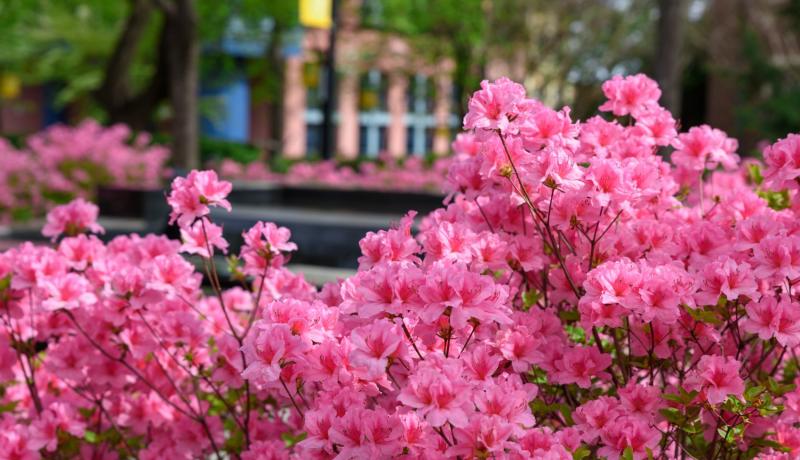There's still time to enroll for our Winter Intersession and Spring 2025 semesters in both undergraduate and graduate programs. Ready to Elevate YOUR Life? Apply Now!
Already a student and need to register for Spring classes? Register now! Contact an academic advisor today at 201-200-3300 or uac@njcu.edu or schedule a virtual appointment with an advisor!
Great Things Growing in the NJCU Greenhouse

In a few short years, the NJCU greenhouse has undergone a major transformation from an underutilized space to a comprehensive research and teaching facility.
I couldn’t be happier.
Currently, I am using the greenhouse for genetic and molecular biology research, growing maize and GMO tobacco plants to better understand the plant reproduction processes that affect our food production. The knowledge gained from this research can contribute to increasing food harvests and reducing the time needed by classical plant breeding methods to produce better tasting and disease resistant fruits from trees.
But the greenhouse isn’t just being used for hardcore research and Biology courses. Anyone who is interested in plants is welcome to (literally) get his or her hands dirty in any one of a number of recently created NJCU programs. The students who participate have unofficially christened themselves “The Greenhouse Society” and are a cross-section of NJCU majors. The programs in which the Society takes part offer a stress-free learning environment for the University community to explore the importance of plants from perspectives ranging from the cultural to the scientific.
For example, some students use the facility to plant, grow, and teach others in the community about herbs and their uses.
A Plant Therapy workshop organized by The Greenhouse Society with Chi Sigma Iota hosted Certified Master Gardener Theresa Schneider. The event brought together students and the chair of the Department of Counselor Education to discuss Horticulture Therapy and its beneficial uses to counselors working with clients of all ages.
In April, the greenhouse program was also home to a workshop on how teachers can incorporate plants into an Early Childhood Education curriculum.
Additionally, Honors Program juniors are engaging in greenhouse program activities as an extension of their study abroad course, “Food, Place, and Cultural Performance in Peru.” One of their objectives is to gain some familiarity with native plants in preparation for their May study abroad trip to South America.
The Greenhouse Society also takes field trips—the most popular of which are journeys to the Philip E. Marucci Center for Blueberry and Cranberry Research and Extension, a substation of the New Jersey Agricultural Experiment Station (NJAES) of Rutgers University.
These are just a few of the new and exciting programs available at NJCU for anyone interested in how plants influence our world. If our students’ enthusiasm is any judge, the number of Greenhouse Society programs will only (if you’ll pardon the pun) grow.